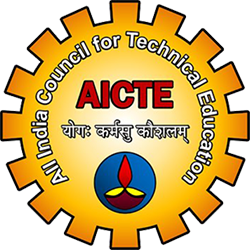Modern society is characterised by globalisation, which makes logistics and supply chain management relevant today more than ever before. In recent years, any company’s global expansion has led to the growth of supply chain management across all industries and has made this process much more challenging. PGDM with Supply Chain (SC) and Logistics Management (LM) prepares its students for a highly fluid market and the potential for numerous exciting and lucrative opportunities.

The Expanding Scope of Supply Chain and Logistics
The field of supply chain and logistics management has become a complex field where management of technology, big data and sustainability strategies overlap. Since customers are now demanding faster and more efficient delivery of products and services, employees who have specialised training in these areas are highly sought-after by companies.
Even in the e-Commerce segment, global players like Amazon or Flipkart have changed logistics with same day delivery, automated warehousing and real-time tracking. This stream calls for adequate supply chain executives whose duty is forecasting, minimising risks and therefore overhauling the production processes. It therefore becomes easy for PGDM graduates to manage these dynamics given the opportunity to lead this competitive field.
Skills That Make PGDM Graduates Stand Out
A PGDM is a programme that covers theoretical and practical business skills and knowledge relevant to the contemporary market. These courses may be among the many that are offered in a curriculum, including supply chain analysis, logistics, operations strategy and international trade. These programmes focus on practice-oriented education in which students engage in practical exercises during internships, projects and case studies.
Strategic Thinking: PGDM graduates possess a keen ability to analyse market trends and craft long-term strategies that align with business objectives.
Tech Proficiency: With digital transformation reshaping logistics, knowledge of AI, blockchain and predictive analytics is essential. PGDM programmes ensure that graduates are well-versed in these technologies.
Leadership and Collaboration: Managing cross-functional teams and fostering partnerships with suppliers and vendors require strong interpersonal and leadership skills, both of which are emphasised in PGDM courses.
Problem-Solving Aptitude: Supply chains face unpredictable challenges like geopolitical disruptions, natural disasters or pandemics. PGDM graduates are trained to develop agile and resilient systems to address these hurdles.
These qualities make PGDM graduates invaluable for roles such as supply chain analysts, logistics managers, operations consultants and procurement specialists.
The Demand for Supply Chain Talent
Industry analysts have estimated that at a CAGR of more than 10%, the global market for supply chain management is apt to expand greatly in the next decade. This growth is due to the increased globalisation of trade, technological development and people’s new focus on environmental problems.
While doing so, companies look for employees who can rise to the challenge and address phenomena such as green logistics, circular supply chain management and ethical purchasing. This is because PGDM graduates have a balanced education background and also a practical experience from their hands-on learning.
Furthermore, governments across the globe are focusing more on infrastructure and trade, offering new prospects to the logistics market.
Career Growth and Opportunities
The supply chain and logistics profession are equally rewarding in terms of job security and advancement. There is great potential for employment in this sector and starting salaries are usually decent. The supply chain professionals can also work their way up the corporate ladder to become supply chain directors, the COOs or even entrepreneurs, who come up with new and innovative ways of doing Supply Chain logistics.
Multinational corporations, consulting firms, firms from the e-commerce sector and third-party logistics are among the major recruiters in the field. Thus, with industries focusing heavily on complex supply chain management systems, the employability of PGDM graduates will just move up.
Conclusion
The innovations in this field and the huge demands of supply chain and logistics management is a reason the field attracts PGDM graduates. Through its method of creating effective professionals, Sparsh Global Business School is one of the vital institutions to nurture future ready professionals. They also foster the creation of stimulating PGDM programme to enable students to address the requirements of advancing markets.
For supply chain management professionals who wish to attain the position of leaders, PGDM from Sparsh Global Business School is not merely a certificate, it is the potential to explore the unexplored avenues in the ever-expanding global market. Dedicated to the principles of quality and prepared for modern industry, the school helps graduates adapt to one of the most demanding and profitable spheres of contemporary business.
FAQ’s
- How does Sparsh Global Business School help in this career of Supply Chain and Logistics Management?
Sparsh Global Business School offers cutting-edge PGDM programs with hands-on training and industry-focused courses to prepare students for success in supply chain management.



